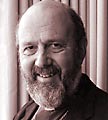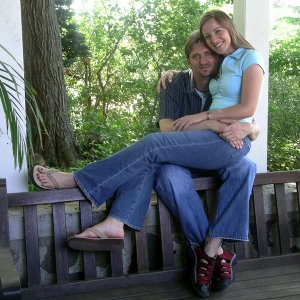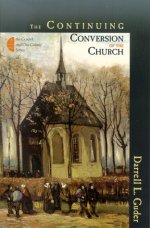 Well, I'm posting this here because my philosophy is that if I'm going to write over 1,000 words, and it's not either personal/private or dreadfully boring (read "work-related"), then it's going up on the dern blog. Below is a reply I just sent to an unprecedented, long, spirited discussion on the Yahoo group I set up years ago for my circle of college friends. (We refer to ourselves as "The Looneys".) We have generally only used the group list to plan our yearly reunions, but someone posted something about a group opposing the Christian right, and thus were a great many words born. Our group of friends includes conservative Christians (Protestant and Catholic), liberal Christians, Deists, Pagans, agnostics, and atheists, and all kinds of other flavors too. We're all pretty educated and opinionated. So it's been quite a ride. But anyway, here's what I wrote. You can get a sense of the themes in the discussion so far by reading below.
Well, I'm posting this here because my philosophy is that if I'm going to write over 1,000 words, and it's not either personal/private or dreadfully boring (read "work-related"), then it's going up on the dern blog. Below is a reply I just sent to an unprecedented, long, spirited discussion on the Yahoo group I set up years ago for my circle of college friends. (We refer to ourselves as "The Looneys".) We have generally only used the group list to plan our yearly reunions, but someone posted something about a group opposing the Christian right, and thus were a great many words born. Our group of friends includes conservative Christians (Protestant and Catholic), liberal Christians, Deists, Pagans, agnostics, and atheists, and all kinds of other flavors too. We're all pretty educated and opinionated. So it's been quite a ride. But anyway, here's what I wrote. You can get a sense of the themes in the discussion so far by reading below.----------
Hi everybody!
All I can say is, "wow!" Here's what's neat: the surprising thing is *not* that the Looneys can have such a civil and friendly conversation about such deeply divisive issues despite an obviously W-I-D-E range of viewpoints. The surprising thing is that nothing like this has happened on this list before, as far as I can remember.
So - I've been gone (with Tina and our dog Machig and our friend Tim) since Saturday backpacking through Maryland on the Appalachian Trail, which explains why I haven't weighed in on this discussion thus far. And - um - there've been a lot of words written while I was away! Lots of wise words, lots of speculative words - good, mind-stretching stuff. So, I won't attempt a point-for-point engagement of anybody's arguments. Instead, I'll just briefly state my own opinion on some of the issues that have been discussed, in case anybody's interested.
First of all, I'm a Christian. If you don't believe me, check out my blog at www.rudetheology.com. A lot of you remember me when I was a student-of-all-religions, practitioner-of-none, and then a Tibetan Buddhist for three years. I won't launch into my whole spiritual autobiography, but suffice it to say that I'm a pretty committed Christian (strongly considering seminary, among other things). Here some other adjectives which help describe my particular location within the body of Christ, though some of this might not mean anything to y'all (though Google and Wikipedia could help if you're interested): Anglican, missional, emerging/emergent, Celtic, Anglo-Catholic, liturgical, postmodern, post-liberal. Some other adjectives that somewhat describe me, but may not mean to me exactly what they mean to you: evangelical, born-again. To be maybe a little more clear: I'm very serious about my ongoing attempt to follow Jesus, I take the Bible very seriously, and I consider myself to be within the bounds of the traditional orthodox Christian faith. However, when I say "post-liberal" that doesn't mean conservative; it means that I embrace my liberal background, but I embrace it both lovingly and critically. I embrace my "modern, rational, skeptic" background and my Tibetan Buddhist background similarly. Actually, same goes for "Anglican", "missional", "evangelical", and the rest. All of these help form my point of view, but none of them are immune from critique.
So anyway, that's a long-winded way of stating where I'm coming from. From that point of view, I'll throw out these opinions:
- One of the things that's been debated here is the existence of God. Let me state my opinion on God: I'm definitely pro-God. God and I have a relationship that I value very highly. I get a lot more out of it than I put into it, that's for sure. So I believe in God like I believe in Tina. I have a lot of faith in God like I have a lot of faith in Tina. But as for whether "God" "exists", you'll need to define those two terms in quotes pretty precisely before I'll even begin to consider debating the question with you.
- Another thing that's been debated is creationism, "intelligent design", and evolution. One of the ways I relate to God is as Creator - of me, you, everything else. It would appear, based on the best science we've got so far, that one of the methods God uses to create this universe is evolutionary change. That science is what should be taught in science class. "Intelligent design" is speculation, not science, and does not belong in public school science classes. However, the first two chapters of Genesis also tell true stories about how we got where we are. I agree with Tom that stuff like that, from many world religions, should be taught in religion (not science) classes in public schools.
- That touches on probably the biggest thread in this discussion: church and state. Here's the deal about that. In the early fourth century CE/AD, the Roman Emperor Constantine, who had converted to Christianity, first changed the faith's status from a despised, persecuted cult to an accepted religion, and then made it *the* official religion of the Empire. Thus began something called "Christendom", the wedding of some very strange bedfellows: 1) The faith of the followers of Jesus Christ (who spent his life and death peacefully yet powerfully opposing the "powers and principalities" of Imperial oppression and the culture of domination), and 2) The State (first the Roman state, then the European nation-states, then the US and other colonial nations), which is inexorably bound up with those powers and principalities, those systems of domination that are completely at odds with, to take just one example, the Beatitudes in the fifth chapter of the Gospel according to Matthew. This may be what had to happen for the church to survive, but on balance I think it was a terrible move. I think it led to centuries - over a millennium - of compromise of the gospel of grace and freedom in service to the powers of domination and capitulation to the dominant culture.
But here's the good news: Christendom is *so* over! It's done, dudes, and the efforts of the Christian Right to restore it are, I hope and pray, doomed. Christians do not need state support (legislated Christian values, etc.) in order for the church to flourish - look at the first three centuries of the Christian era! Look as St. Paul - he sure didn't have state support! We don't need it, and we (in my opinion) don't want it: getting in bed with the state means compromising the gospel, and in my opinion that's too high a price to pay. Good riddance to Christendom, I say. It's no good for atheists, it's no good for Deists, it's no good for Buddhists, Hindus, Jews, or Muslims, and it's no good for Christians either. I dance on its grave, and I respectfully disagree with anybody who says we need it back in order to raise our kids right. Let's strengthen our families, our church communities, and our neighborhoods, but let's keep the church the heck out of the state. The closest Jesus ever got to the halls of government was on his way to the cross. There's a lesson there, I think.
So anyway, that's what I think about that. :-) Sorry I lied about being brief.




